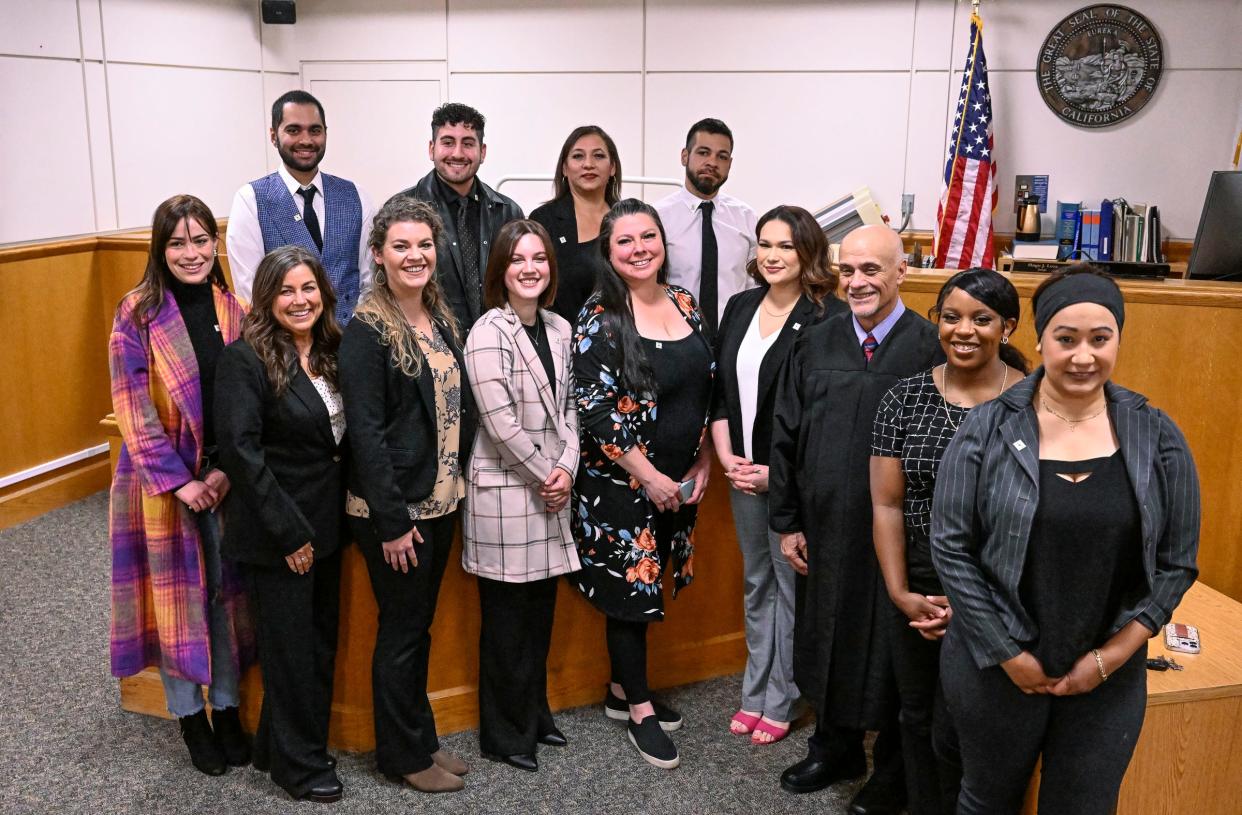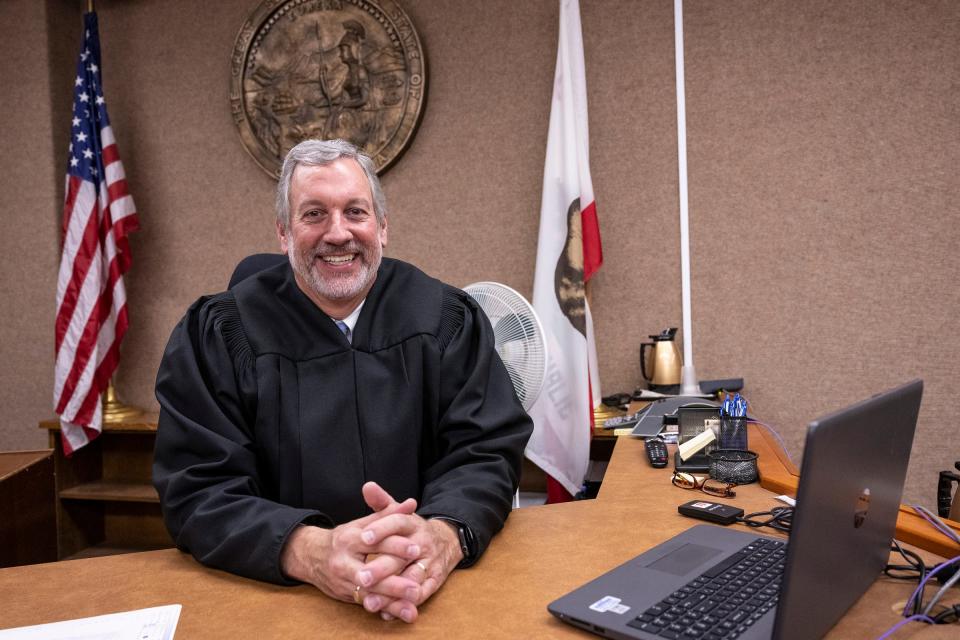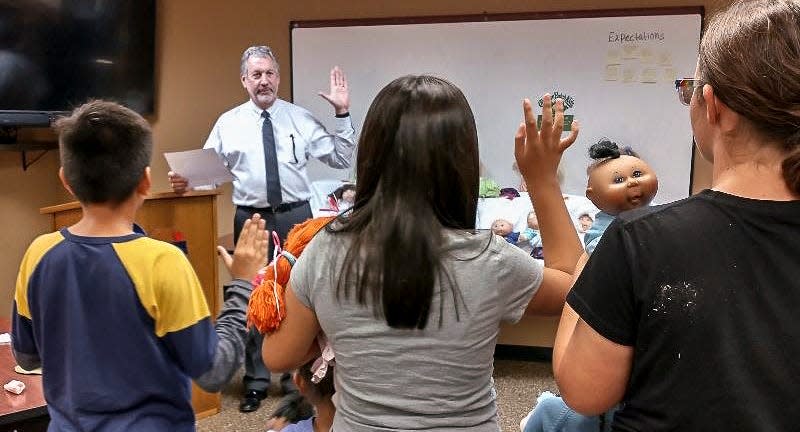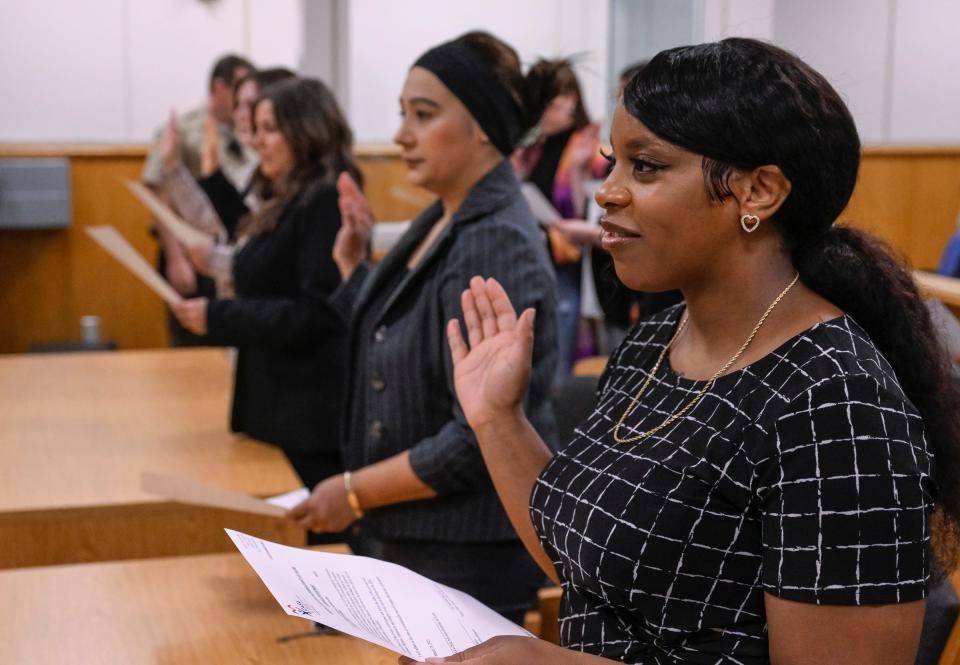CASA makes a difference in children's lives, Judge Bianco says

Judge John Bianco swore in his last CASA class of court-appointed advocates on March 23 before his upcoming transfer from juvenile court to civil court. The new volunteers will work with children removed from their homes because of abuse or neglect.
The swearing-in was timely because it came just before last month's “March on Main,” which kicks off Child Abuse Prevention Month. The Tulare County Child Abuse Prevention Council (CAPC) and CASA (Court Appointed Special Advocates) host the annual event.
Judge Bianco has worked closely with CASA advocates in determining how to rule on child abuse and neglect cases. CASAs visit one-on-one with these children, make sure their needs are met, and help mentor them.
“CASAs make a difference,” Bianco said. “They give us additional information in their reports than we get from Child Welfare Services. We also learn how well the child develops and about their medical care.”
Tulare County has, on average, 1,000 active cases of children who have been removed from their homes. Of course, there are not enough volunteer CASA advocates for every child, but Bianco wishes more people would volunteer.
“With older children, the CASA can serve as a mentor who can relate to that child and maybe turn that child around.”
CASA especially needs male advocates to work with boys and young men.
“That teenage male probably has no positive male figures in his life,” Bianco said.

Being a judge
Bianco worked with his father in the Bianco Law Firm for 22 years before applying to become a superior court judge in 2016.
“I enjoyed being an attorney, but at some point, I thought becoming a judge would allow me to assist more people.”
After being appointed to the bench by the governor in 2016, he spent three years in family court (divorces, custody, and domestic violence cases) before being assigned to juvenile court.
Assignments are made by the presiding judge, with the expectation that judges will be moved to different assignments.
“It makes us better judges,” Bianco said.
He admitted he would miss juvenile court but looks forward to his next assignment.
“One of the advantages of juvenile court is you’re encouraged to be involved in the community.”
When Bianco heard that CASA would be holding an “adoption” of donated Cabbage Patch dolls for CASA kids to take home, he volunteered to attend the event and preside over the adoption. He signed the adoption papers and had the children swear to “love and protect” their new babies.
Real adoptions are another happy job for judges. And Bianco finds absolute satisfaction in seeing positive results.

What’s best for the child
The judge’s job is always to decide what is best for the child. When children are taken from their homes, the parents are given a chance to straighten up and take classes to qualify to have their children returned.
“Sometimes parents can’t change. It may be drugs, anger management, or domestic violence. We try to give them the tools, but sometimes they can’t change,” Bianco said.
“Statistics show that children living with domestic violence are likely to become perpetrators or victims themselves. Sometimes the only way to stop the cycle is to remove them.”
The goal is to find the best solution for the child and enable them to move forward—with or without their parents.
“There have been a couple of cases where my initial impression was that a child was a delinquent, but once we delved into it, saw the relationship with the parents and stepparents, and got them services, they flourished. One became a mentor for other kids.”
That kind of impact is the satisfaction the judge finds in his role.

Volunteers needed
Nonprofit agencies such as Family Services and CASA that help abused children and adults suffering domestic violence and sexual assault are finding it hard to recruit volunteers since Covid.
Volunteers are vital for these agencies, and both require extensive training for the volunteers to work with victims. That training time could be at least part of the problem.
CASA (Court Appointed Special Advocates) has come up with one solution that increased their volunteer applicants, said Melinda Morales Righi, director of outreach and communication.
They created an accelerated training class. Instead of the usual five-week, twice-a-week course, the accelerated class ran for two weekends. Volunteers from that first accelerated class and regular class members were sworn in at the juvenile court on March 23.
CASA plans to run several accelerated classes a year along with their regular classes.
Lorene Mendoza, Family Services volunteer coordinator, believes people found other activities to keep occupied during Covid, many aren’t comfortable getting back out in public.
Family Services is also looking at other training models.
For more information, contact Righi at CASA, 559 625-4007 or www.casatulareco.org or Mendoza at Family Services at 559 732-1970 or www.fstc.net/how-to-help/volunteer.html.
This article originally appeared on Visalia Times-Delta: CASA makes a difference in children's lives, Judge Bianco says

